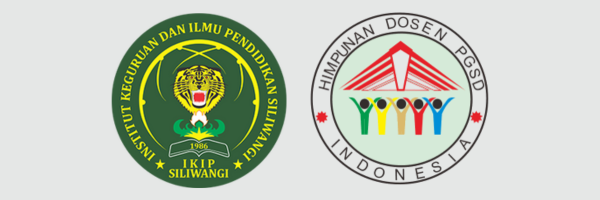Online Learning Through The RADEC Model to Increase HOTS of Elementary School Students in The Time of The Covid-19 Pandemic
DOI:
https://doi.org/10.22460/pej.v6i2.3034Abstract
During the Covid-19 pandemic, thinking skills-oriented learning has not been implemented properly, the impact of student HOTS is getting lower. The purpose of this study is to increase the HOTS of elementary school students during the Covid-19 pandemic through the RADEC learning model. The research was conducted at SDN Harapan 1 Cimahi City. The research methodology uses classroom action research. Data collection techniques used are tests and observations. Data analysis used comparative analysis techniques and qualitative analysis. The results showed that there were only 2 students in the pre-cycle data that obtained the "good" criteria, in the first cycle it increased significantly to 15 students, and in the second cycle it increased again to 20 students. Furthermore, in the pre-cycle students who completed it reached 13 students (37.1%), in the first cycle increased to 28 students (80%), and the second cycle by 33 students (94.2%) who completed. This significant increase is because the entire syntax of the HOTS-oriented RADEC learning model can be easily implemented during the Covid-19 pandemic because the syntax is flexible, adaptive, and in accordance with the characteristics of Indonesian students. The conclusion of this study is that the RADEC learning model can increase the HOTS of grade IV students at SDN Harapan 1 for the 2020/2021 academic year during the Covid-19 pandemic.
References
Abdullah, AH, dkk.. (2017) Mathematics Teachers’ Level of Knowlegde and Practice on the Impementation of Higher-Order Thinking Skills (HOTS). Journal of Mathematics
Agustin, M., Pratama, Y. A., Sopandi, W., & Rosidah, I. (2021). Pengaruh Model Pembelajaran RADEC Terhadap Keterampilan Berpikir Tingkat Tinggi Siswa PGSD, Jurnal Cakrawala Pendas, Vol. 7, No. 1
Binkley, M., dkk. (2012). “Defining Twenty-First Century Skills†dalam Assessment and Teaching of 21st Century Skills. New York: Springer.
Brookhart, S. M. (2010). How to Assess High-er Order Thinking Skills in Your Class-room. Alexandria: ASCD
Chiang, C. L., & Lee, H. (2016). The Effect of Project-Based Learning on Learning Motivation and Problem-Solving Ability of Vocational High School Students, International Journal of Information and Education Technology, 6(9). http://doi.org/10.7763/IJIET.2016.V6.779
Duran, M. & Dökme, I. (2016). The effect of the inquiry-based learning approach on student’s critical-thinking skills, Eurasia Journal of Mathematics, Science & Technology Education, 12(12), hlm. 2887-2908. doi: 10.12973/eurasia.2016.02311a
Fatimah, S. (2016). The Effect of Project Based Science Learning on PGSD Students ’ Creative Thinking Ability, Jurnal Pendidikan Indonesia. 7(2), hlm. 100–105. DOI : 10.23887/jpi-undiksha.v7i2.13018
Fitrianawati, M., Maharani, E. A., Pramudyani, A.V.R. (2020). Peningkatan kualitas pembelajaran aktif berbasis HOTS bagi guru di Kecamatan Tempel di era pandemi Covid-19, Prosiding Seminar Nasional Hasil Pengabdian kepada Masyarakat Universitas Ahmad Dahlan 2020, Hlm. 625-630
Genc, M. (2014). International Research in Geographical and Environmental Education The project-based learning approach in environmental education, (February 2015), 37–41. http://doi.org/10.1080/10382046.2014.993169
Gunawan, Sahidu, H., Harjono, A. & Suranti, N. M. Y. (2017). The Effect Of Project Based Learning With Virtual Media Assistance On Student’s Creativity In Physics, Cakrawala Pendidikan. Th. XXXVI, No. 2, hlm. 167-179
Hugerat, M. & Kortam, N. (2014). Improving Higher Order Thinking Skills among freshmen by Teaching Science through Inquiry. Eurasia Journal of Mathematics, Science & Technology Education, 2014, 10(5), hlm. 447-454.
Hülya Küçükoğlu, (2012). Improving reading skills through effective reading. kdeniz Language Studies Conference 2012. Procedia - Social and Behavioral Sciences 70 (2013) 709 – 714 doi:10.1016/j.sbspro.2013.01.113
Jabeen, Shazi S. (2014). Implementation Of Communicative Approach, English Language Teaching, 7(8), Hlm. 68-74
Jumanto, Sopandi, W., Kuncoro, Y., Handayani, H., & Suryana, N. (2018). The Effect Of Radec Model And Expositorial Model On Creative Thinking Ability In Elementary School Students In Suralaya. Dalam Syaodih, Sujana, Handayani & William (Penyunting). Prosiding International Conference on Elementary Education (hlm. 561-567). Bandung: Universitas Pendidikan Indonesia.
Khatib, M. & Mehrgan, K. (2012). Advances in Digital Multimedia (ADMM) 166 Vol. 1, No. 3, 2012, ISSN 2166-2916
Kusuma, M. D., Rosidin, U., Abdurrahman, & Suyatna, A. (2017). The Development of Higher Order Thinking Skill (HOTS) Instrument Assessment In Physics Study, IOSR Journal of Research & Method in Education (IOSR-JRME), 7(1), hlm. 26-32, DOI: 10.9790/7388-0701052632
Limbach, B & Waugh, W. (2010). Developing Higher Level Thinking. Journal of Instructonal Pedagogies. 12 (1), hlm. 1-9
Lukmanudin. (2018). Penguasaan Konsep IPA dan Kemampuan Menjelasakan Perpindahan Zat Pencemar Siswa PGSD melaui Pembelajaran Read-Answer-Discuss-Explain-and Create. (Tesis). Jurusan Pendidikan Dasar Sekolah Pascasarjana Universitas Pendidikan
Madhuri , V. S.S.N Kantamreddi & L. N.S. Prakash Goteti (2012). Promoting higher order thinking skills using inquiry-based learning, European Journal of Engineering Education, 37(2), hlm. 117-123
Maryani, I. & Martaningsih, S. T. (2020). Motivasi guru sekolah dasar pada pelatihan pengembangan alat evaluasi berorientasi HOTS dalam pembelajaran jarak jauh di masa pandemi covid 19, Prosiding Seminar Nasional Hasil Pengabdian kepada Masyarakat Universitas Ahmad Dahlan 2020, Hlm. 789-798
Murphy, P. Karen, Rowe Meredith L., Ramani, G. & Silverman, R. (2014). Promoting Critical-Analytic Thinking in Children and Adolescents at Home and in School, Educ Psychol Rev, 26, hlm. 561–578. DOI 10.1007/s10648-014-9281-3
Musingafi, Chando, M. C. & Muranda, Enety, K. (2014). Students and Questioning: A Review of the Role Played By Students Generated Questions in the Teaching and Learning Process. Studies in Social Sciences and Humanities. 1(3), hlm. 101-107
Nourdad, N., Masoudi, S., & Rahimali, P. (2018). The Effect of Higher Order Thinking Skill Instruction on EFL Reading Ability, International Journal of Applied Linguistics & English Literature, 7(3), hlm. 231-237. http://dx.doi.org/10.7575/aiac.ijalel.v.7n.3p.231
Nugroho, R. A. (2018). HOTS (Kemampuan Berpikir Tingkat Tinggi: Konsep, Pembelajaran, Penilaian, dan Soal-soal). Jakarta: PT Gramedia Widiasarana Indonesia
OECD. (2017). Educational Opportunity for All. https://doi.org/10.1787/9789264287457-en
OECD. (2013). PISA 2012 Results: What Students Know and Can Do Student Performance in Mathematics, Reading and Science Volume I.
Petrovska, S., & Stavreva, S. (2013). Contemporary Pedagogical Approaches for Developing Higher Level Thinking on Science Classes. Procedia - Social and Behavioral Sciences, 92(Lumen), 702–710. http://doi.org/10.1016/j.sbspro.2013.08.742
Pratama, Y.A, Sopandi, W., & Hidayah, Y. (2019). RADEC Learning Model (Read-Answer-Discuss-Explain And Create): The Importance of Building Critical Thinking Skills In Indonesian Context, International Journal for Educational and Vocational Studies (IJEVS, )DOI: https://doi.org/10.29103/ijevs.v1i2.1379
Pratama, Y. A. & Solehuddin, M. (2019). Effect Of Quantum Learning Model On Higher Order Thinking Skills In Grade 4th Elementary School, 253(Aes 2018), 396–400.
Pratama, Y. A., Sopandi, W., Hidayah, Y., & Trihatusti, M. (2020). Pengaruh model pembelajaran RADEC terhadap keterampilan berpikir tingkat tinggi siswa sekolah dasar. JINoP (Jurnal Inovasi Pembelajaran), 6(2), 191-203. https://doi.org/10.22219/jinop.v6i2.12653.
Pratiwi, N., Sopandi, W., & Rosdiono, M. (2018). The Students ’ Conceptual Understandings On Global Warming Through Read-Answer-Disscuss-Explain-And Create (RADEC) Learning. Dalam Syaodih, Sujana, Handayani & William (Penyunting). Prosiding International Conference on Elementary Education (hlm. 635–639). Bandung: Universitas Pendidikan Indonesia.
Rashid, Sumaira & Shahzada, Q. (2016). Developing Critical Thinking through Questioning Strategy among Fourth Grade Students. Bulletin of Education and Research. 38(2), hlm. 153-168
Sasson, I., Yehuda, I., & Malkinson, N. (2018). Fostering The Skills Of Critical Thinking And Question-Posing In A Project-Based Learning Environment, Thinking Skills and Creativity. http://doi.org/10.1016/j.tsc.2018.08.001
Schoenbach, R., & Greenleaf, C. (2017). Leading for literacy. Phi Delta Kappan, 99(3), hlm. 59–64.doi:10.1177/0031721717739596
Sopandi, W. (2017). the Quality Improvement of Learning Processes and Achievements Through the Read-Answer-Discuss-Explain-and Create Learning Model Implementation. Dalam C. M. Keong, L.L. Hong, & R. Rao (Penyunting), Proceeding 8th Pedagogy International Seminar 2017, 8, 132–139. Kuala Lumpur: Institut Pendidikan Guru Kampus Ilmu Khas
Sopandi, W. & Handayani, H. (2019). The Impact Of Workshop On Implementation Of (RADEC) Learning Model On Pedagogic Competency Of Elementary School Teachers, 178(Icoie 2018), hlm 7-11.
Sopandi, W., Pratama, Y. A., & Handayani, H. (2019). Sosialisasi dan Workshop Implementasi Model Pembelajaran RADEC Bagi Guru-Guru Pendidikan dasar dan Menengah, Pedagogia: Jurnal Pendidikan, 8 (1), hlm. 19-34.
Suryaningsih, N. M. A., Cahaya, I. M. E., Poerwati, C. E. (2016). Implementasi Pembelajaran Inkuiri Terbimbing Berbasis Permainan Dalam Meningkatkan Kreativitas Anak Usia Dini, Jurnal Pendidikan Indonesia, 5(2), hlm. 212-220
Tembang, Y. Sulton, & Suharjo. (2017). Peningkatan Motivasi Dan Hasil Belajar Melalui Model Pembelajaran Think Pair Share Berbantuan Media Gambar Di Sekolah Dasar. Jurnal Pendidikan Universitas Negeri Malang. 2(6), hlm. 812-817.
Trilling, B. & Fadel, C. (2009). 21st Century Skills: Learning for Life in Our Times. San Francisco: Jossey-Bass A Wiley Imprint.
Tuba, Şengül Bircan. (2017). A study on reading habits of social studies and history teachers in Turkey, Educational Research and Reviews, 12(10), hlm. 569-582.DOI: 10.5897/ERR2017.3245
Yuliati, L., Riantoni, C. & Mufti, N. (2018). Problem Solving Skills on Direct Current Electricity through Inquiry-Based Learning with PhET Simulations. International Journal of Instruction, 11(4), hlm. 123-138.












